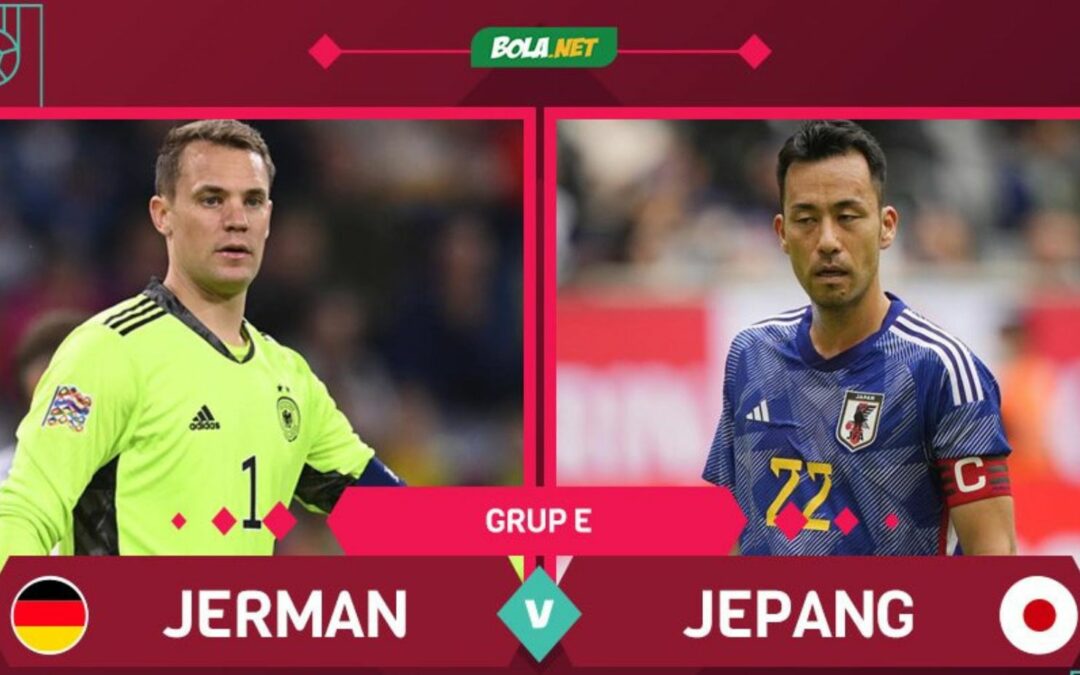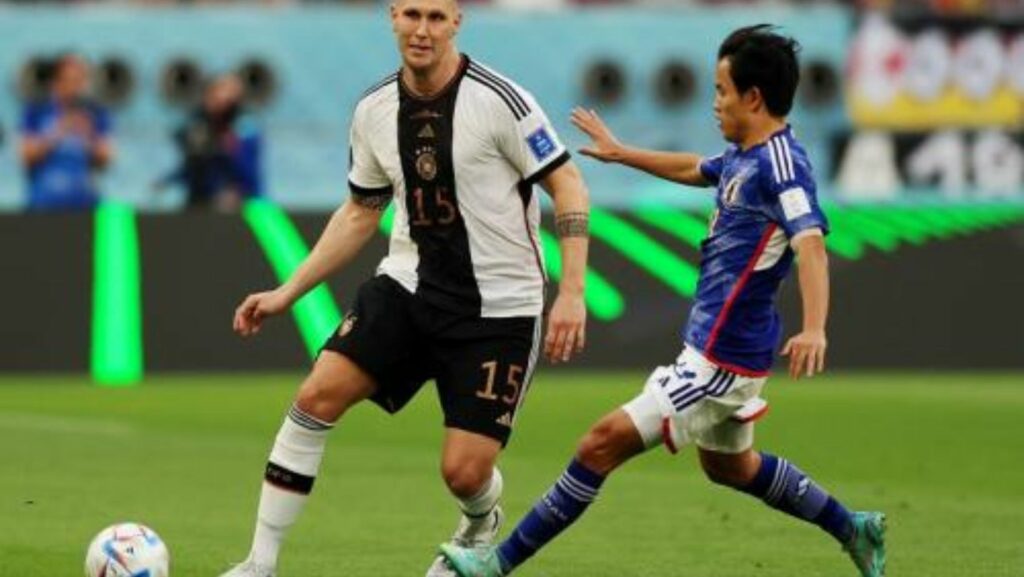Linimasa Timnas Jerman vs Tim Nasional Sepak Bola Jepang
As I delve into the comparison between the national football teams of Germany and Japan, it’s essential to recognize the rich history and distinctive playing styles that each team brings to the table. The German national team, also known as “Die Mannschaft,” boasts a formidable record in international competitions, with multiple World Cup victories under their belt. On the other hand, Japan’s national team, often referred to as the “Samurai Blue,” has 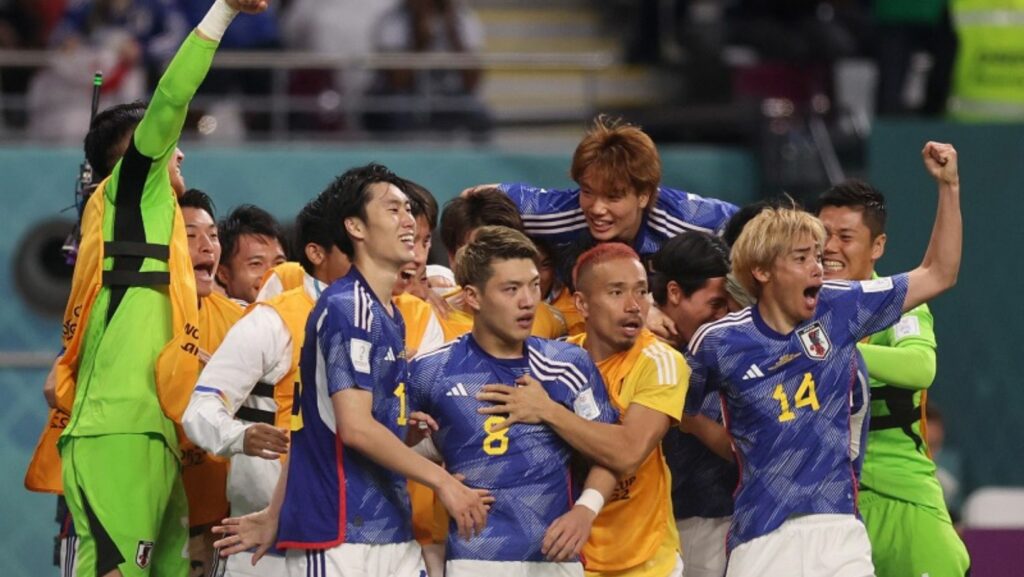
When examining LINIMASA TIMNAS JERMAN VS TIM NASIONAL SEPAK BOLA JEPANG, one cannot ignore the contrasting footballing philosophies embraced by these two nations. Germany is renowned for its emphasis on physicality, discipline, and structured gameplay, while Japan prioritizes quick passing, fluid movement, and intricate ball control. These differing approaches not only shape their on-field strategies but also reflect cultural nuances and sporting traditions unique to each country.
In this article, I’ll delve deeper into the key players to watch from both teams, analyze recent performances leading up to their anticipated matchups, and explore how historical encounters between Germany and Japan have unfolded. By unraveling the intricacies of LINIMASA TIMNAS JERMAN VS TIM NASIONAL SEPAK BOLA JEPANG, we can gain a comprehensive understanding of what makes these two footballing powerhouses stand out on a global scale.
History of German National Football Team
As we delve into the rich history of the German National Football Team Linimasa Timnas Jerman vs Tim Nasional Sepak Bola Jepang, it’s evident that they have left an indelible mark on the sport. The journey began in 1908 when Germany played its first international match against Switzerland, marking the commencement of a storied legacy.
Key Milestones
Here are some key milestones in the history of the German National Football Team:
| Year | Event |
|---|---|
| 1954 | Winning their first FIFA World Cup |
| 1972 | First UEFA European Championship victory |
| 1990 | Securing their third FIFA World Cup title |
Notable Players
Throughout the years, Germany has been home to numerous legendary footballers who have graced the national team with their exceptional skills. From 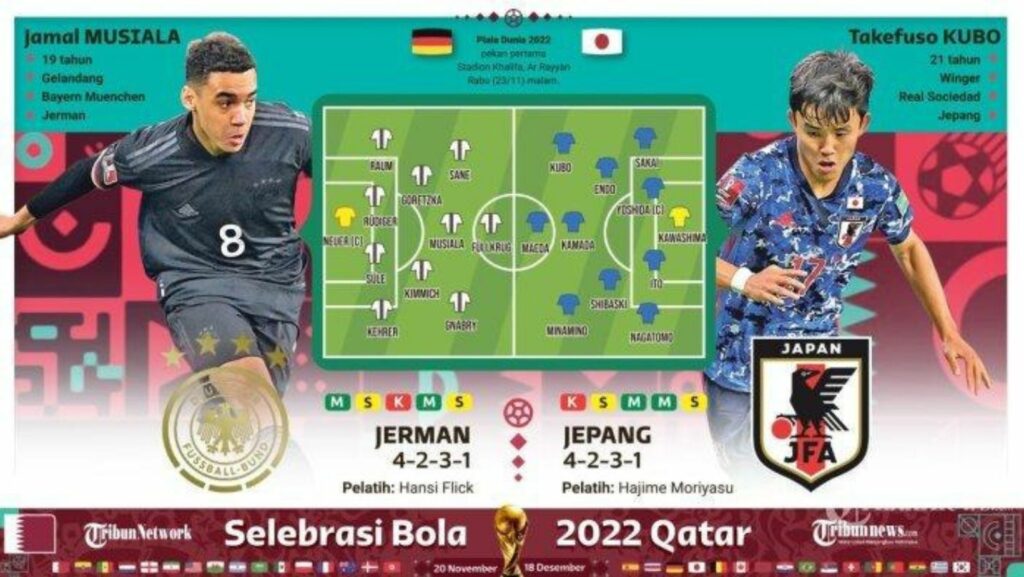
Tactical Evolution
The tactical evolution of the German National Team is also worth highlighting. Known for their disciplined approach and strategic prowess, Germany has adapted to different playing styles over time while maintaining a consistent level of competitiveness on the global stage.
International Rivalries
Over the decades, Germany has fostered intense rivalries with other top footballing nations such as Italy, Brazil, and Argentina. These matchups have not only showcased thrilling displays of skill but have also added layers of drama to international competitions.
In summarizing, the history of the German National Football Team is a testament to perseverance, excellence, and passion for the beautiful game. With a legacy defined by triumphs and challenges alike, Germany continues to be a powerhouse in world football with a future as promising as its illustrious past.
History of Japanese National Football Team
As we delve into the history of the Japanese National Football Team Linimasa Timnas Jerman vs Tim Nasional Sepak Bola Jepang, it becomes evident that soccer holds a significant place in Japan’s sporting culture. The team’s journey dates back to the early 1900s when football started gaining popularity in the 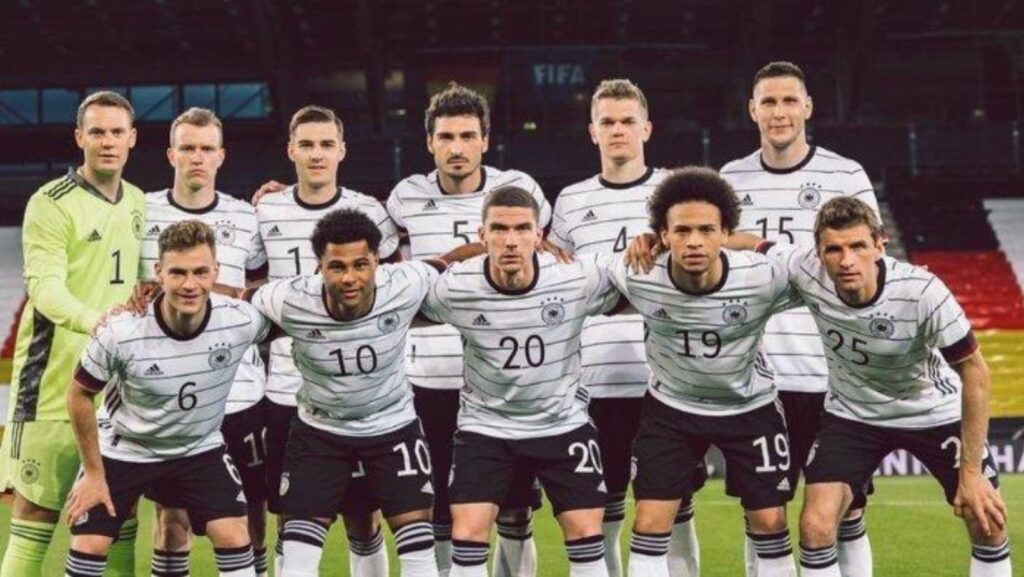
In 1951, Japan made its official debut on the international scene by participating in the Asian Games held in New Delhi, India. This marked a crucial moment for Japanese football as it laid the foundation for future growth and development. Despite facing strong opponents, Japan’s participation helped raise awareness about the sport within the country.
Over the decades, Japan’s national team underwent a transformation, evolving into a competitive force in Asian football. The 2002 FIFA World Cup hosted by South Korea and Japan was a milestone event for Japanese football. The team’s performance garnered attention worldwide as they advanced to the Round 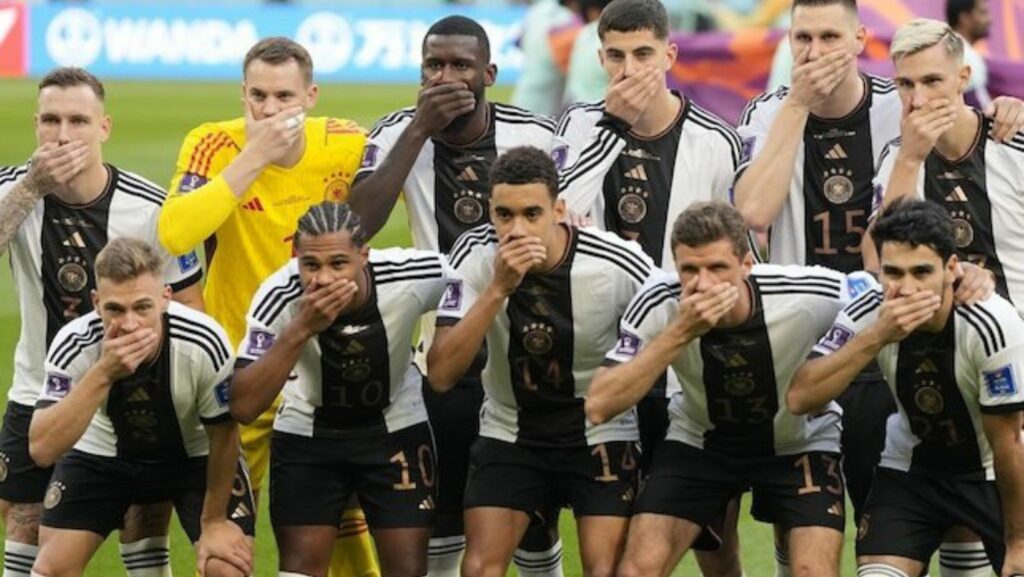
Japan continued to make strides in international competitions, with notable achievements such as winning multiple AFC Asian Cups and consistently qualifying for successive FIFA World Cup tournaments. The team’s success not only boosted national pride but also inspired younger generations to pursue careers in professional football.
In recent years, Japan has focused on nurturing young talent through grassroots programs and strengthening domestic leagues to ensure sustainable growth and competitiveness at both regional and global levels. As we reflect on the history of the Japanese National Football Team, it is evident that their journey is a testament to passion, perseverance, and dedication towards achieving excellence in soccer.
Key Players in the German National Team
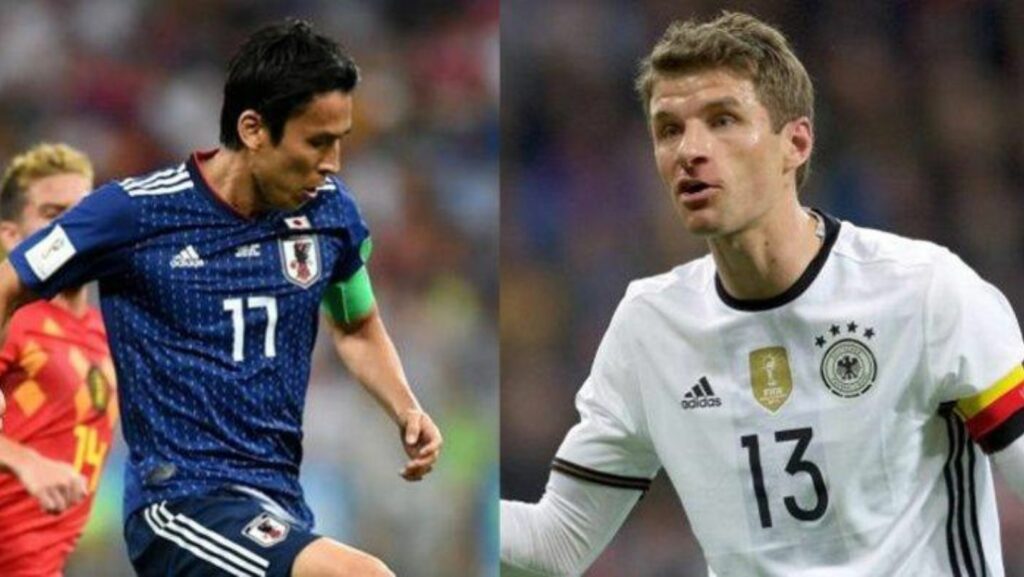
Manuel Neuer – The Wall Between the Posts
Manuel Neuer, often referred to as “The Wall” for his exceptional goalkeeping skills, stands tall as Germany’s first-choice goalkeeper. Known for his commanding presence in the box, impeccable shot-stopping abilities, and precise distribution, Neuer has solidified his place as one of the best goalkeepers in the world. His leadership on and off the field makes him a crucial figure in Germany’s defensive setup.
Joshua Kimmich – The Versatile Midfield Maestro
Joshua Kimmich has emerged as a linchpin in Germany’s midfield, displaying remarkable versatility and tactical acumen. Whether orchestrating play from deep-lying positions or surging forward to support attacks with pinpoint crosses and incisive passes, Kimmich’s impact is undeniable. His work rate, technical proficiency, and ability to read the game make him an indispensable asset for Die Mannschaft.
Toni Kroos – The Maestro of Precision Passing
Toni Kroos, known for his metronomic passing range and composure under pressure, epitomizes excellence in midfield play. A master of controlling tempo and dictating play, Kroos’ vision and decision-making elevate Germany’s attacking prowess. With a keen eye for unlocking defenses with intricate through balls or long-range efforts, he remains a key figure in shaping Germany’s style of play.
Serge Gnabry – The Prolific Attacking Threat
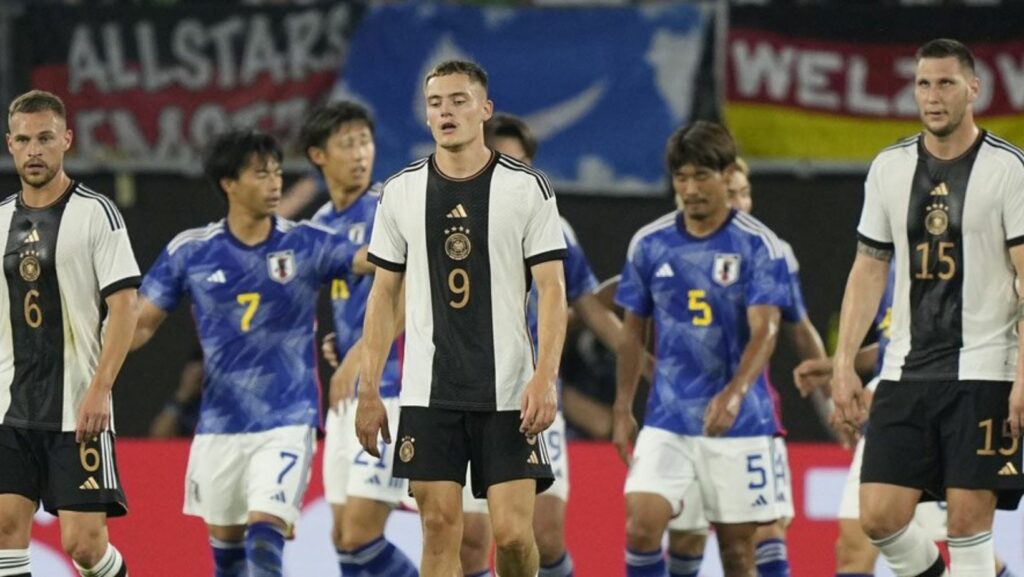
In assembling this stellar lineup of key players within the German National Team ranks like Neuer, Kimmich, Kroos & Gnabry showcase not only individual brilliance but also collective strength that continues to propel Germany towards success on football’s grandest stages.
Previous Matches between Germany and Japan
As we delve into the history of matches between Germany and Japan, it’s evident that these encounters have sparked great interest among football 
In recent years, Germany and Japan have faced off in several friendly matches and international tournaments, each game adding a new chapter to their footballing rivalry. These games have not only been about competition but also about cultural exchange and mutual respect between the players representing their nations.

